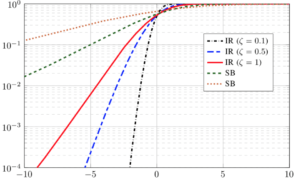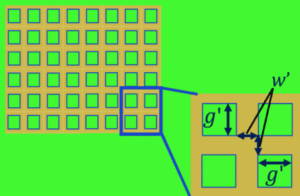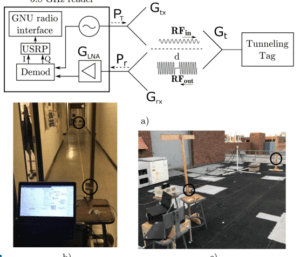 As part of the IEEE 2020 conference in Orlando, FL, we announce the Workshop on Wireless MoCap. Please view the Call for Participation for more information. Taking place from 28-29 April 2020, the workshop will be exploring applications in wireless motion capture, fine-scale localization, and imaging. The workshop is currently accepting talk abstracts, full papers, tutorial proposals, demonstrations, and posters.
As part of the IEEE 2020 conference in Orlando, FL, we announce the Workshop on Wireless MoCap. Please view the Call for Participation for more information. Taking place from 28-29 April 2020, the workshop will be exploring applications in wireless motion capture, fine-scale localization, and imaging. The workshop is currently accepting talk abstracts, full papers, tutorial proposals, demonstrations, and posters.
Backscatter Fading, From Worst to Best
 A Theoretical Channel Model for Spatial Fading in Retrodirective Backscatter Channels
A Theoretical Channel Model for Spatial Fading in Retrodirective Backscatter Channels
Mohammad Alhassoun ; Gregory D. Durgin
IEEE Transactions on Wireless Communications
Year: 2019 | Early Access Article | Publisher: IEEE
Abstract: The round-trip nature of backscatter communications subjects the radio link to unusually severe small-scale fading. Over fading channels, the received signal envelope in backscatter-based systems such as radio-frequency identification (RFID) systems fades worse than a standard one-way communication. In this paper, we study spatial fading of the received signal envelope in an important class of backscatter systems using retrodirective transponders that allow microwave and mm-wave communications at extraordinarily low-power consumption by an RF tag. Our comparative study shows that the use of retrodirective RF tags changes the backscatter channel statistics from being doubly faded to singly faded, resembling a conventional, one-way radio channel. Surprisingly, fading in retrodirective backscatter channels is highly varied and sensitive to the fine structure of the diffuse multipath waves in the radio environment in ways that fading in conventional radio links are not.
See-Through RF Circuits and Antennas
Design and Characterization of Meshed Microstrip Transmission Lines
Zachary J. Silva ; Christopher R. Valenta ; Gregory D. Durgin
2019 IEEE MTT-S International Microwave Symposium (IMS)
Year: 2019 | Conference Paper | Publisher: IEEE
Abstract: Advancements in manufacturing techniques have enabled the ability to create micro-mesh conductive structures which have applications in a variety of electrical engineering technologies. This paper presents the theoretical analysis verified with simulated results and laboratory measurements of a 2.4 GHz micro-mesh transmission line over a solid ground plane. As expected, the reduction in conductive area results in a decrease in capacitance per unit length, and the mesh structure results in an increase in inductance per unit length leading to an overall increase in characteristic impedance and increase in electrical length. Results show that the mesh implementation to reduce the conductive material to 16% on a microstrip transmission line using FR-4 must get 44% wider than its solid metal counterpart to maintain 50 Ω impedance. Length must be similarly increased by a factor of 4% to maintain the same electrical length.
Cheng Qi and Francesco Amato’s Award-Winning Localization Paper
Breaking the Range Limit of RFID Localization: Phase-based Positioning with Tunneling Tags
Cheng Qi ; Francesco Amato ; Mohammad Alhassoun ; Gregory D. Durgin
2019 IEEE International Conference on RFID (RFID)
Year: 2019 | Conference Paper | Publisher: IEEE
Abstract: The measurements reported in this work demonstrate the ability to extend the localization range of low-powered RFID tags to distances usually not achievable with conventional RFID technology. The ranging technique is performed through the Frequency Domain Phase Difference Of Arrival (FD-PDOA) method on a 5.8 GHz Tunneling Tag, both in a multipath-rich indoor environment and outdoor, at distances up to 15 meters from the reader. Range estimation errors as low as 1.95% were observed, moreover, an EIRP of only 10.5 dBm, a biasing power for the Tunneling Tag of only 21.32 μW (80 mV), and a tag antenna gain of 1 dBi suggest the potential of power-stingy Tunneling Tags to be used in low-powered RFID localization applications for very long-range scenarios.
- « Previous Page
- 1
- …
- 4
- 5
- 6
- 7
- 8
- …
- 71
- Next Page »

